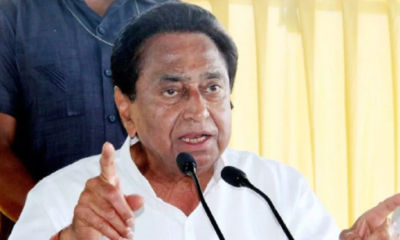Law
Understanding Marking Scheme and Question Paper Details for CLAT 2024

The Consortium of National Law Universities is scheduled to administer the Common Law Admission Test (CLAT) for the year 2024 on December 3, 2023. This offline exam is designed for entry into undergraduate and postgraduate law courses and will take place at various test centers nationwide.
The Question Booklet (QB) for the exam comprises 120 Multiple Choice Questions (MCQs) and includes two blank pages for rough work. No additional sheets for rough work will be provided, and candidates cannot seek clarification on the booklet during the examination. If any discrepancies are identified in the Question Booklet, candidates may request the invigilator to replace it along with the OMR response sheet. It is crucial not to use the previous OMR response sheet with the new booklet. Candidates are required to enter their admit card number on the first page of the booklet before commencing the exam.
All answers must be recorded on the provided OMR response sheet. Candidates should use a black/blue ballpoint pen for marking their answers.
For the undergraduate five-year integrated program, the Question Booklet is allocated 150 marks. Each correct answer earns one mark, and there is a negative marking of 0.25 marks for each incorrect answer. No deductions are made for unanswered questions.
In the case where a candidate does not shade any circle for a question or shades a circle incompletely, it will be treated as an unanswered question. If more than one circle is shaded for a question or stray marks are made on the OMR response sheet, it will be considered double marking and result in an incorrect answer.
Law
Supreme Court and Government Criticized for Failing Women on Abortion Rights

India has long celebrated its “liberal abortion regime,” as highlighted by Union Minister Smriti Irani in a 2022 article. The government emphasizes efforts to make reproductive choices affordable and promote safe motherhood. However, recent judicial decisions reveal a concerning trend challenging the purported liberal stance on abortion in the country.
Abortion Laws and Reproductive Hierarchy: The Medical Termination of Pregnancy Act, 1971, was crafted to shield doctors from prosecution for performing abortions within the specified period. While the right to bodily autonomy is recognized by the Supreme Court under Article 21 of the Constitution, a notable reproductive hierarchy has emerged, favoring the medical board and doctors over pregnant individuals. Additionally, the criminalization of abortion continues to loom over women, posing a threat to their bodily autonomy.
Case Analysis: Examining a recent case from the Delhi High Court sheds light on the evolving landscape of abortion jurisprudence in India. A woman sought termination due to severe trauma after her husband’s death, supported by psychiatric evaluations indicating severe depression and suicidal ideation. Despite the court initially ruling in favor of abortion, the All India Institute of Medical Sciences (AIIMS) refused the procedure, emphasizing the need for clarity on the fetus’s status. This reflects a growing trend where court decisions favor the rights of the fetus over the pregnant individual.
Judicial Trends and Concerns: Recent decisions, such as the irregular recall order in another abortion case by the Supreme Court, raise alarms about the shifting abortion jurisprudence. The government’s influence in courts and hospitals, as seen in both AIIMS cases, contradicts Ministry guidelines allowing terminations beyond 20 weeks. This signals a departure from India’s traditional focus on family planning and a growing need for civil society and feminist movements to advocate for the decriminalization of abortion.
Conclusion: While India boasts a liberal abortion regime, recent judicial decisions suggest a worrisome shift in prioritizing fetal rights over the bodily autonomy of pregnant individuals. The potential consequences, akin to the United States, could undermine reproductive health infrastructure and jurisprudence. Advocates stress the urgency for courts to consider the well-being of pregnant individuals and decriminalize abortion to ensure a more equitable and just legal framework.
Law
Supreme Court Set to Examine the Possibility of Women Being Charged With Rape

The Supreme Court has directed the Punjab government to respond to a plea filed by a 61-year-old woman, who is facing allegations in a case filed by her daughter-in-law.
In New Delhi, the question of whether a woman can be charged in a rape case is being examined by the Supreme Court. This inquiry arises as the Court reviews a petition for anticipatory bail filed by a woman implicated in a rape case involving her son. The 61-year-old woman, at the center of the case filed by her daughter-in-law, has sought protection from arrest.
The Supreme Court, represented by a bench comprising Justices Hrishikesh Roy and Sanjay Karol, has granted the woman protection from arrest while requesting the Punjab government to respond to her plea. The court has directed her to cooperate with the ongoing investigation.
“Issue notice, returnable in four weeks. In the meantime, the petitioner is protected from arrest. But she is expected to cooperate with the investigation of the crime,” stated the bench.
Advocate Rishi Malhotra, representing the woman, argued that all charges in the FIR, except the one under Section 376(2)(n) IPC (repeated rape), are bailable. Referring to a Supreme Court judgment, Malhotra asserted that a woman cannot be charged with rape.
The case involves a complainant who was initially in a long-distance relationship with the elder son of the woman, based in the US. Despite not meeting in person, the complainant entered into a virtual marriage with the son and started living with the widow. Tensions arose when the younger son visited from Portugal, leading to alleged pressure to end the informal marriage. Subsequently, a compromise was reached, and the widow provided ₹11 lakh to the complainant to dissolve the marriage with her elder son. The complainant then filed an FIR accusing the widow and her younger son of rape and other charges.
Law
Madras High Court Revisits Acquittals of Two Tamil Nadu Leaders

The Madras High Court has initiated a review of the discharge of two more senior politicians, DMK minister I Periyasamy and former AIADMK minister B Valarmathi, in corruption cases investigated by the state’s Directorate of Vigilance and Anti-Corruption (DVAC). This brings the total number of such reviews undertaken by Justice N Anand Venkatesh to six.
Justice Venkatesh expressed his concerns, stating, “I don’t know how many more cases are to be reviewed. God save this institution and the State.” He suggested that a Lokayukta, similar to the anti-corruption ombudsman present in other states, might be necessary in Tamil Nadu.
Tamil Nadu passed a Lokayukta Act in 2018, establishing an independent quasi-judicial body. However, activists argue that it lacks sufficient powers.
In August, the judge issued notices to four other senior politicians, including DMK ministers K Ponmudy, Thangam Thennarasu, and KKSSR Ramachandran, as well as former Chief Minister O Panneerselvam, in connection with corruption cases. The judge expressed his determination to address the issue, even if it meant facing criticism.
The review of Periyasamy’s discharge relates to a case filed by DVAC in 2012, accusing him of allotting a Tamil Nadu Housing Board plot to the personal security officer of former Chief Minister M Karunanidhi while he was the housing minister. Valarmathi, a former social welfare minister, was discharged in 2021 in a disproportionate assets case.
This development followed a request from Minister Ponmudy and DVAC for Justice N Anand Venkatesh to recuse himself from the proceedings due to his previous observations. The judge stated that he would decide on this matter on September 14.
The DMK has previously indicated that they may take the issue to the Supreme Court.
-

 Fashion1 year ago
Fashion1 year agoFashion Collaborations Embrace Diversity and Progress in Mumbai
-

 Politics11 months ago
Politics11 months agoWill Nakul Nath Contest Elections Again from Chhindwara Lok Sabha Seat? Kamal Nath Makes Clear Amid Discussions
-
Blog7 years ago
According to Dior Couture, this taboo fashion accessory is back
-
Entertainment7 years ago
The old and New Edition cast comes together to perform
-
Sports7 years ago
Phillies’ Aaron Altherr makes mind-boggling barehanded play
-
Entertainment7 years ago
10 Artists who retired from music and made a comeback
-
Sports7 years ago
Steph Curry finally got the contract he deserves from the Warriors
-

 Entertainment1 year ago
Entertainment1 year ago“Rajinikanth’s ‘Jailer’ Set for OTT Release Date, Clashing with Shah Rukh Khan’s ‘Jawan'”

